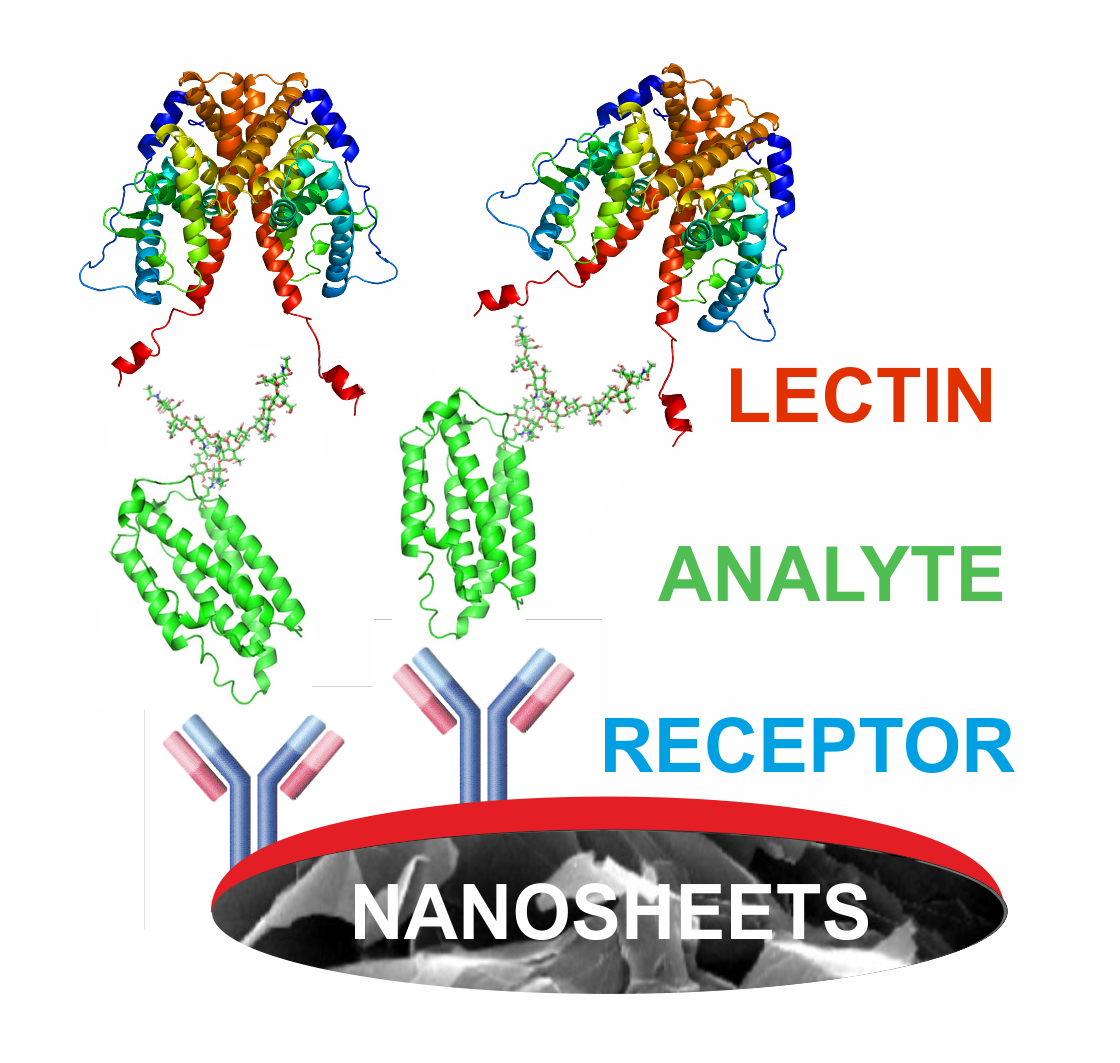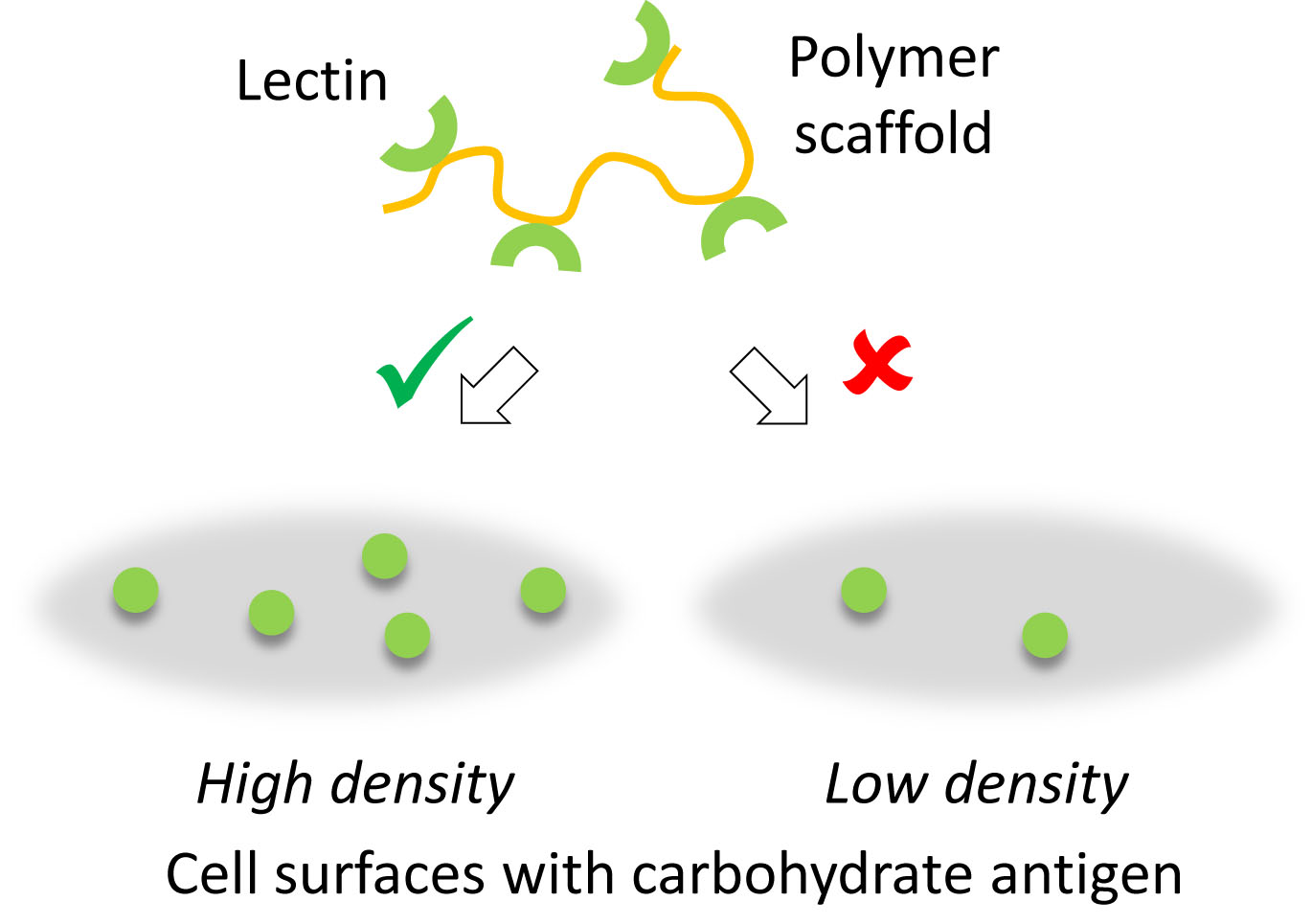WORK PACKAGE 1
Understanding and engineering protein-carbohydrate interactions
The objective of WP1 is to further our fundamental understanding of structure-activity relationships for protein-carbohydrate interactions. In particular, how changes in the architecture of lectins affects their binding selectivity and ability to interact with, bend and fuse membranes together.
ESR1 Engineering multimeric AB5 lectin complexes for membrane fusion
ESR4 Basic mechanisms and applications of lectin-triggered membrane fusion
ESR6 Engineering of neo-lectins and janus lectins
WORK PACKAGE 2
Functionalising complex surfaces with novel glycocalyx and lectin components
The objective of WP2 is to expand our toolbox of Synthetic Glycobiology building blocks that can be used to functionalise complex surfaces including supported bilayers, GUVs, living cells. This work will include chemical and enzymatic synthesis of new glycosylated lipidated peptides and use of bioorthogonal coupling to attach lectins to surfaces in defined orientations. 
ESR2 Mucin-like glycocalyx modules for creating more complex artificial glycocalyxes
ESR7 Application of glycosyl transferases to functionalise protocells
ESR8 Chemical approaches to modify biological membranes and cell-surfaces
ESR10 Lectin attachment on surfaces by bioconjugation at non-canonical amino acids
ESR15 Process development for the production of recombinant lectins in Escherichia coli
WORK PACKAGE 3
Development of synthetic glycobiology tools for analytical and diagnostic methods
In WP3 we will involve developing methods to detect tumour associated cancer antigens and specific glycans important in the quality control of pharmaceutical glycoproteins.
ESR9 Glyco-modulation of membranes to elucidate host-parasite interactions
ESR12 Nanotechnology-driven construction of bioanalytical devices for glycomics
ESR13 Affinity-based methods for high-throughput determination of glycosylation
ESR14 Development of a lectin kit for quality control of recombinant glycoproteins
WORK PACKAGE 4
Development of synthetic glycobiology tools for cell targeting and drug delivery
In WP4 we will investigate how lectins attached to polymers, other lectins, or antibody fragments/mimetics, through bioorthogonal coupling or genetic fusion, can be used to target cancer cells for drug delivery or immunotherapies.
ESR3 Lectins on polymer scaffolds for superselective targeting of cancer cells
ESR5 Crosslinking cytotoxic T cells and cancer cells with lectins to mediate cell death
ESR11 Lectin-drug conjugates to induce cancer cell death by drug delivery
